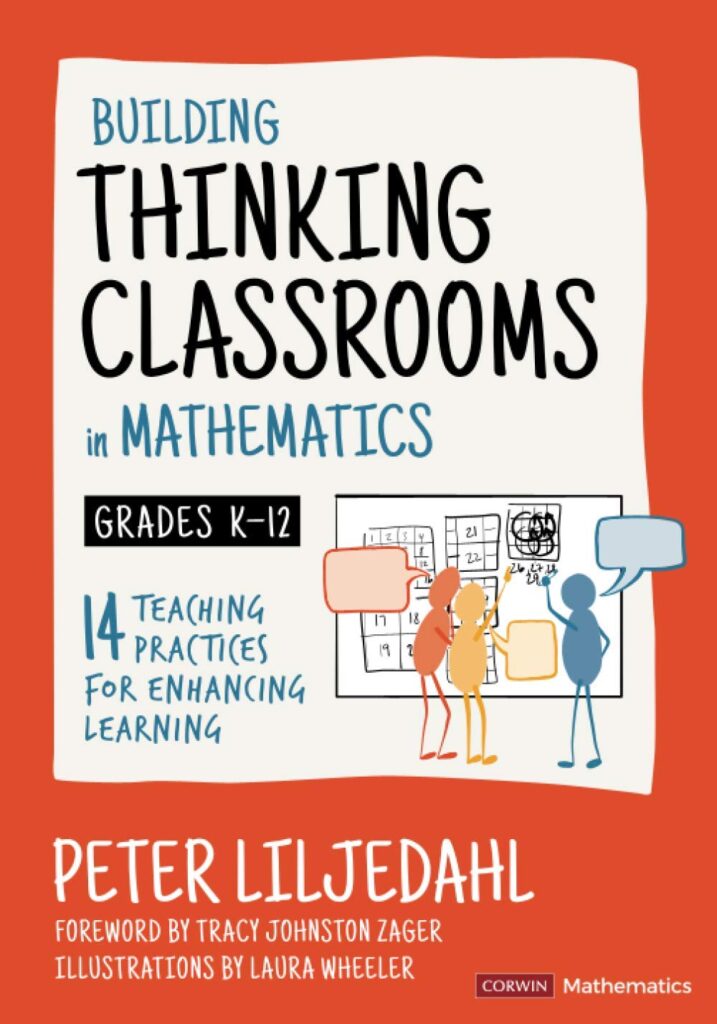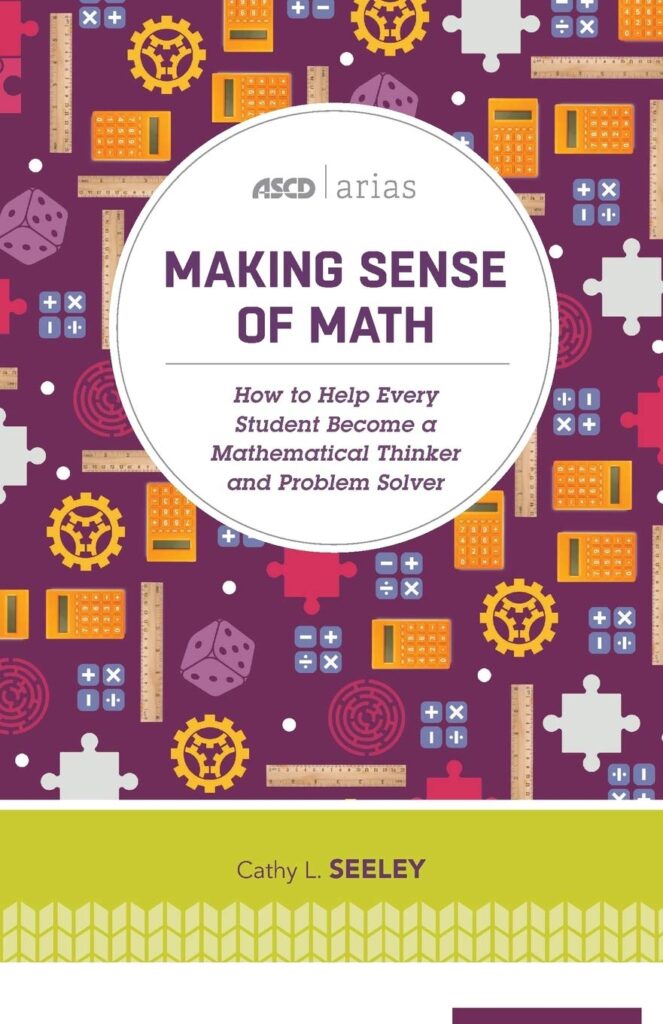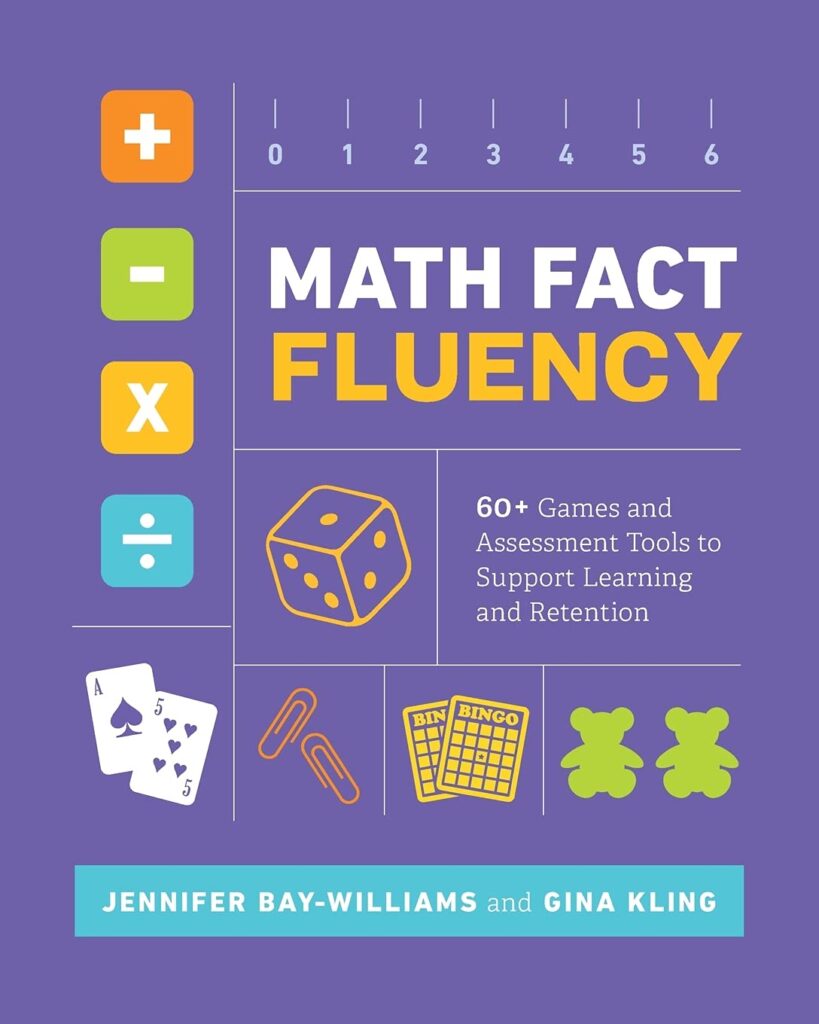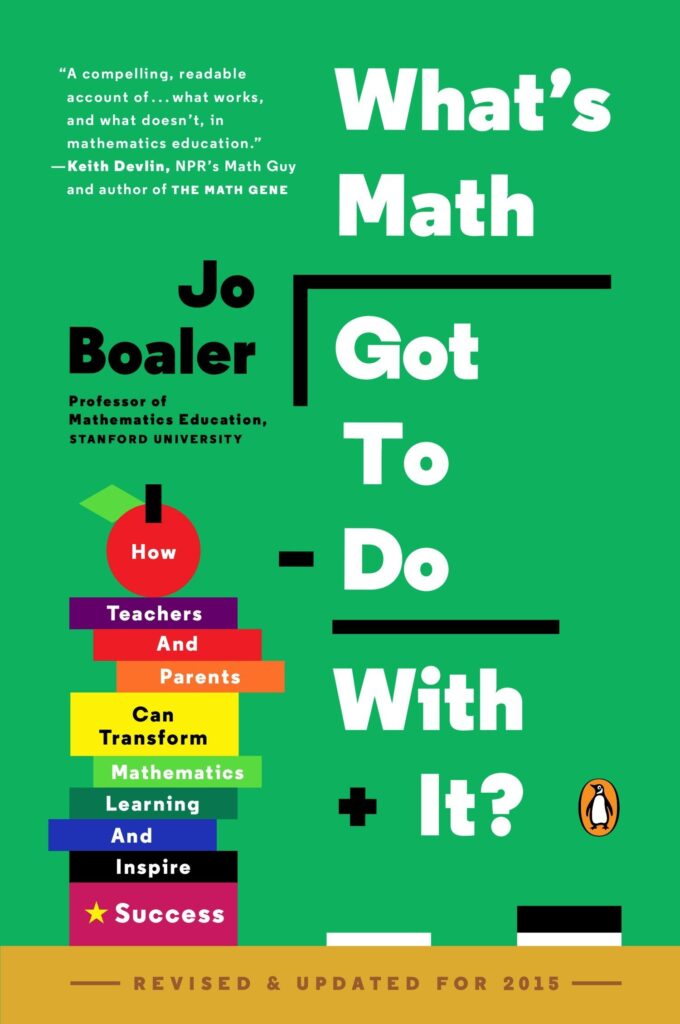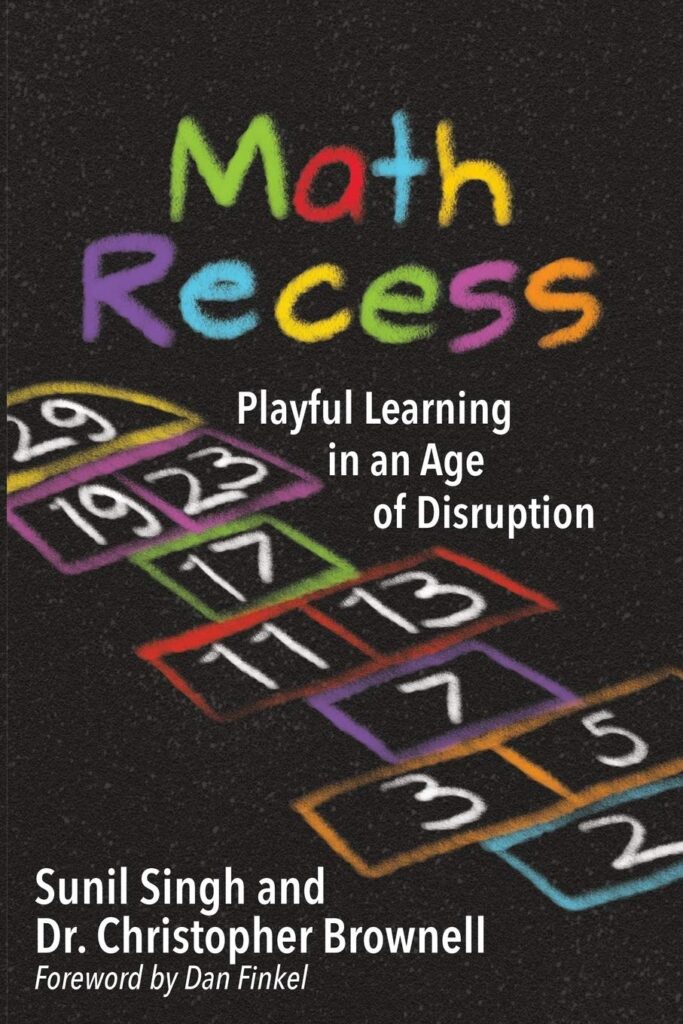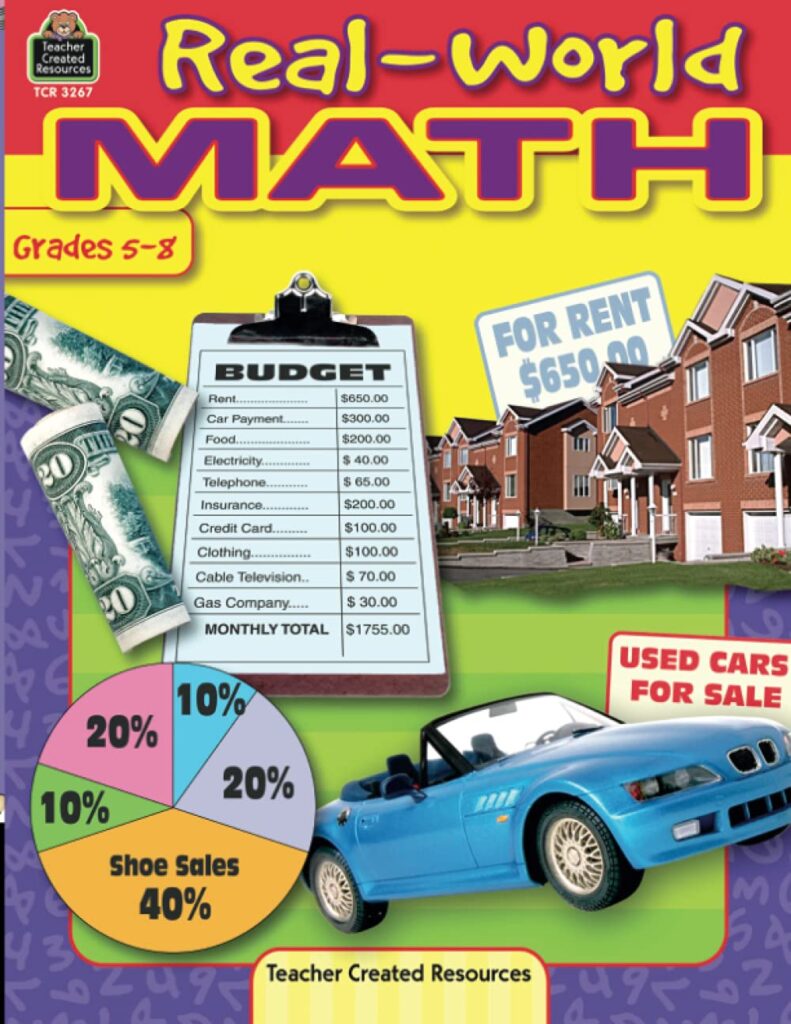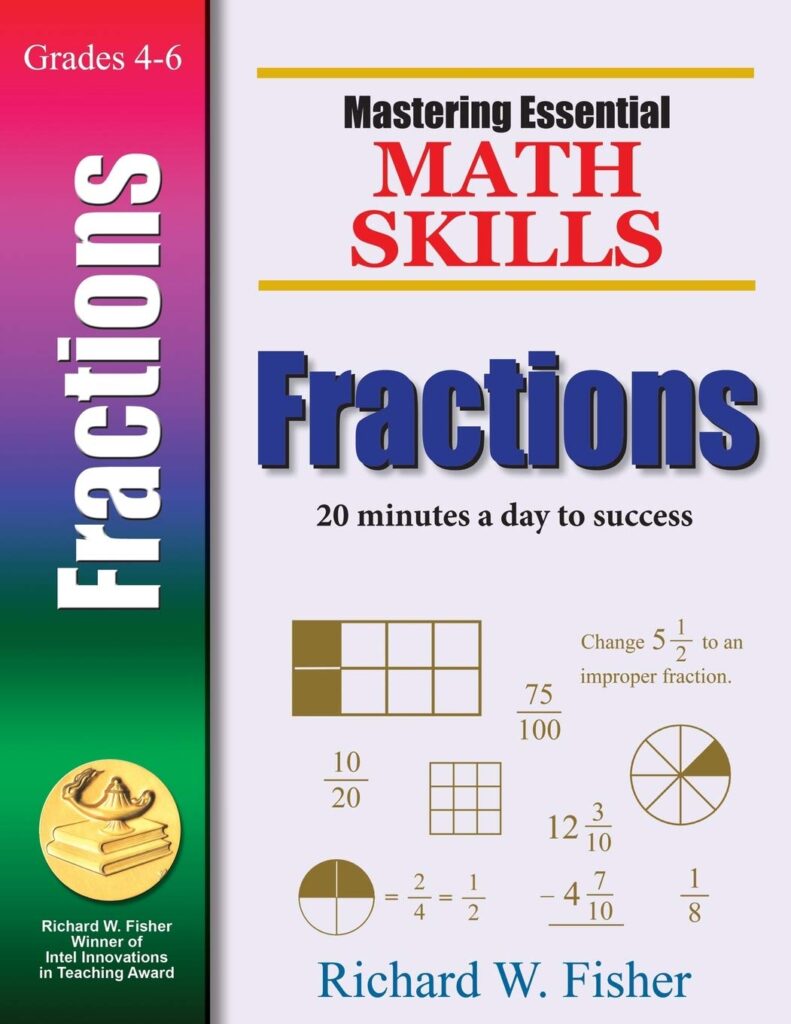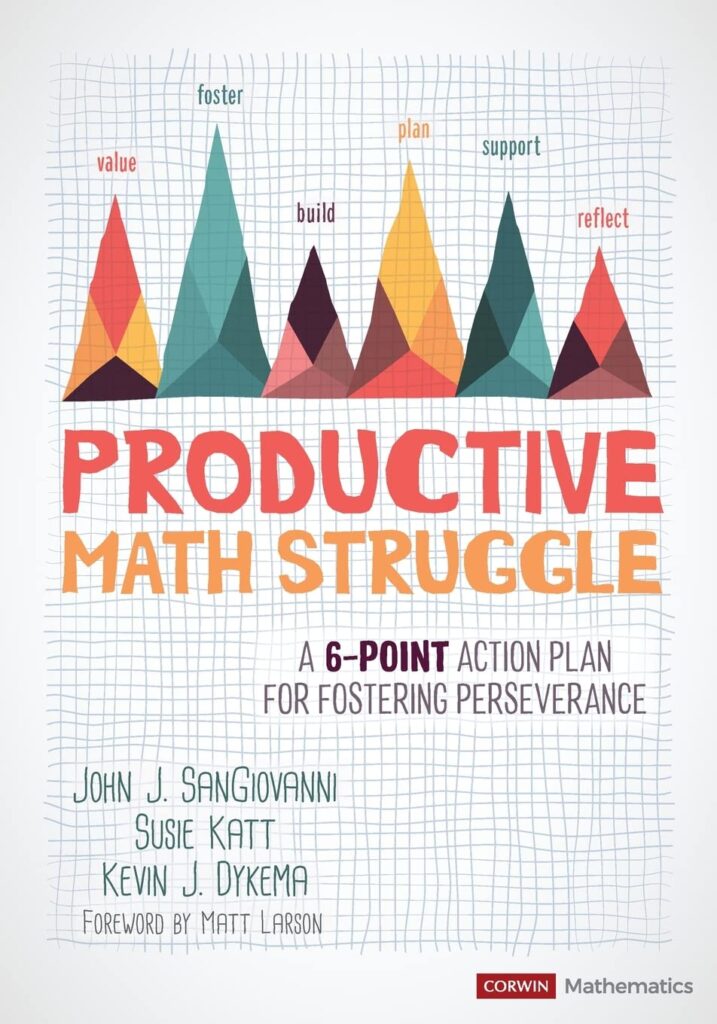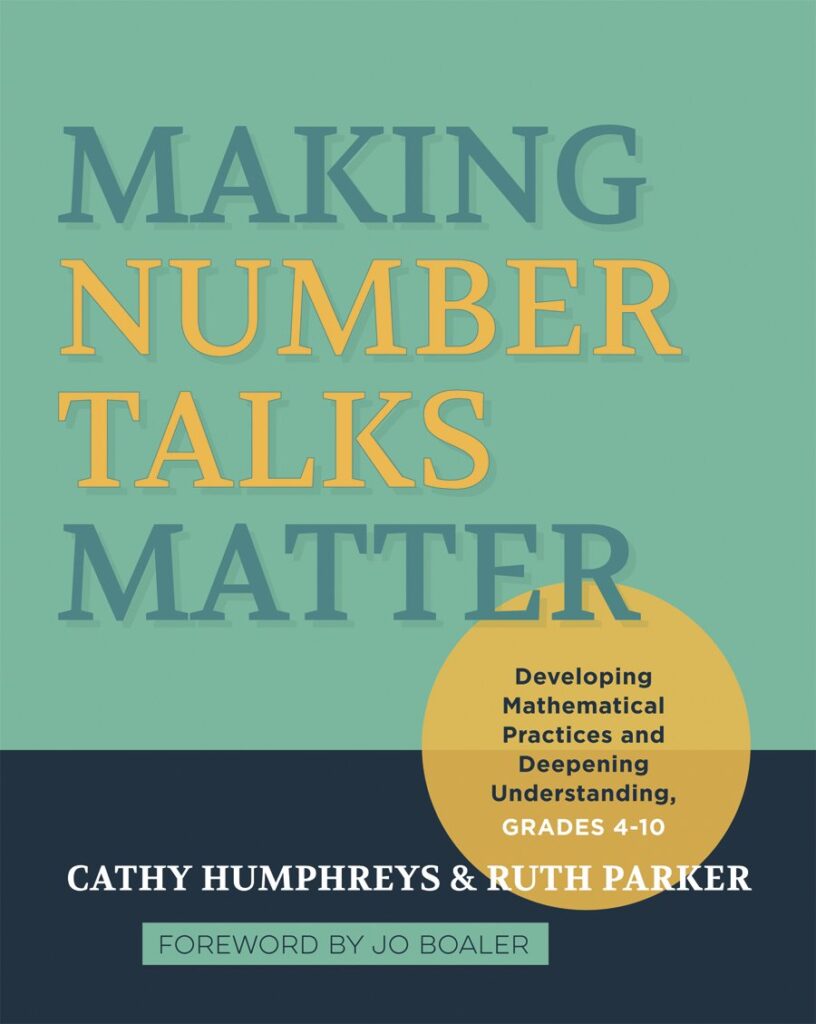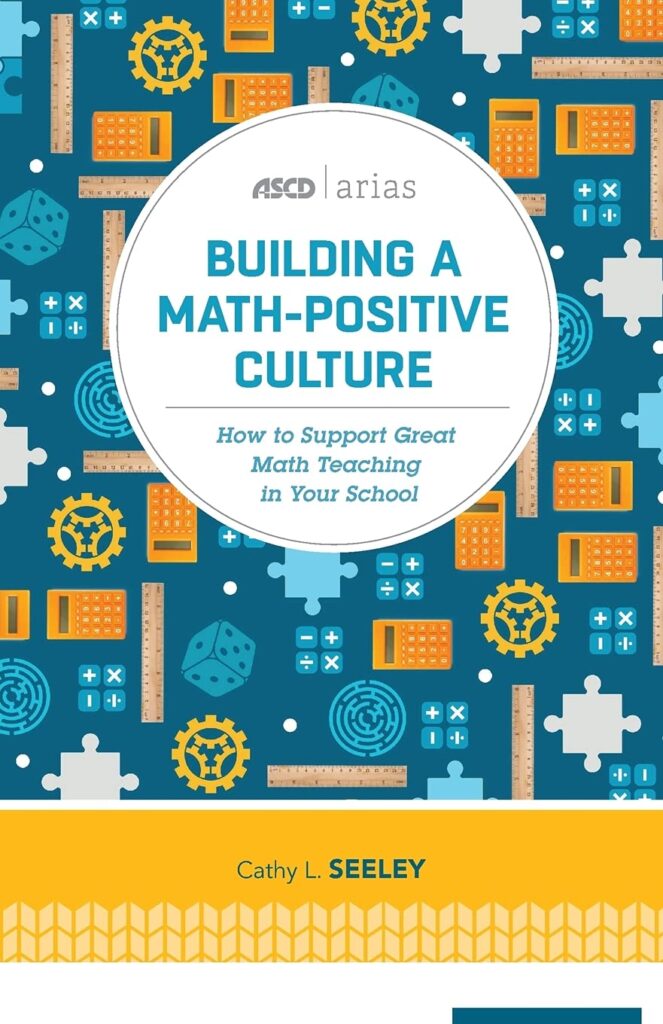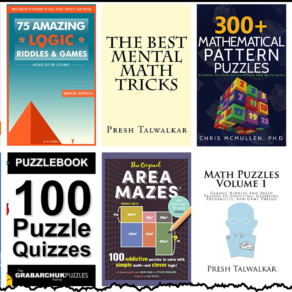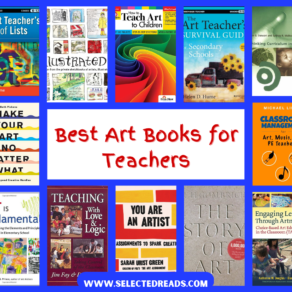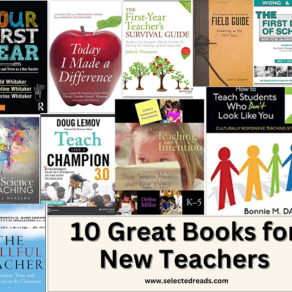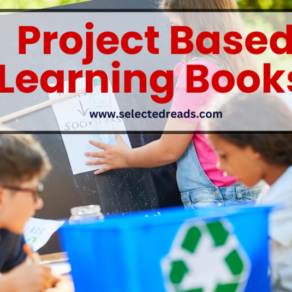Books for math teachers is the topic of our blog post today!
Now, I know what you’re thinking—I’m more at home dissecting sentence structures than quadratic equations. That’s right, my wheelhouse is language, but I’ve donned my researcher cap to curate a list that’ll have every math teacher reaching for their “#1 Teacher” mugs. Why? Because great teaching knows no boundaries and I wanted to delve into what makes math classrooms tick.
After sifting through top-ranking lists, diving into reviews, and even picking the brains of some math-savvy colleagues, I’ve put together a collection of books that are making waves in math education. These reads range from exploring the cognitive science behind math learning to giving you hands-on activities that even Pythagoras would high-five you for.
So even if you, like me, have felt that math is like a foreign language, these books aim to make it a universal one. Whether you’re a math teacher, or just math-curious like me, you’re going to find something in this list to spark your interest and maybe even improve your craft.
[Related: Best Project-based Learning Books for Teachers]
Books for Math Teachers
Here are our top picks for books for math teachers:
1. Building Thinking Classrooms in Mathematics, by Peter Liljedahl
Building Thinking Classrooms in Mathematics by Peter Liljedah is a guide to help teachers create an ideal setting for deep mathematics learning. It is based on 15 years of research and offers 14 teaching practices that can be used to engage students in meaningful thinking. These practices are designed to improve the way teachers facilitate learning and create an environment that encourages students to think deeply.
2. Making Sense of Math, by Cathy L. Seeley
In Making Sense of Math, Cathy L. Seeley encourages teachers to nurture habits of mind that help students become analytical and adaptive problem-solvers. She stresses the importance of incorporating mathematical building blocks into instruction, as well as turning traditional teaching styles “upside down” by placing more emphasis on discussion and analysis.. Making Sense of Math is a recommended read by the National Council of Teachers of Mathematics.
3. Math Fact Fluency, by Jennifer Bay-Williams, Gina Kling
In Math Fact Fluency authors Jennifer Bay-Williams and Gina Kling provide a comprehensive guide for teaching, assessing, and communicating basic math facts. This book offers five fundamentals of fact fluency based on research-based frameworks for effective instruction in the basics.
In addition, readers can find strategies students can use to remember facts, over 40 engaging games and 20 assessment tools, as well as strategies for collaborating with families.
4. What’s Math Got to Do with It?, by Jo Boaler
What’s Math Got to Do with It? by Jo Boaler is an indispensable resource for those looking to improve their children’s mathematical learning. This revised edition includes updated research findings on the brain, mathematics, and the Common Core standards, as well as advice on how to teach mathematics with a growth mindset.
The book also provides teachers and parents with all the practical tools to create meaningful math learning experiences in and outside class.
5. Why Write in Math Class?, by Linda Dacey, Rebeka Eston Salemi, Kathleen OConnell Hopping
Why Write in Math Class provides ideas to help students construct, explore, and reflect on mathematical ideas. It offers teachers a chance to gain insight into student thinking as well as practical advice for how to support writing in math, along with a variety of examples of writing prompts and tasks.
The stories and samples of student work from K-5 classrooms provide insight into how writing in math class can successfully unfold. Definitely a good resources for math teachers.
6. Math Recess: Playful Learning in an Age of Disruption, by Sunil Singh, Christopher Brownell
Math Recess: Playful Learning in an Age of Disruption is a book written by Sunil Singh and Christopher Brownell that encourages readers to explore mathematics in a playful and engaging way.
The book provides parents, teachers, and administrators with creative ideas for mathematical puzzles and problems. Math Recess promotes math as a joyful and meaningful activity that can be enjoyed for many years to come.
7. Real-World Math: Grades 5-8, by Genene Rhodes
Real-World Math: Grades 5-8, by Genene Rhodes, is a comprehensive educational resource for teachers and students alike. It provides meaningful and relevant learning experiences that make math concepts easier to understand in the context of real-world situations. Real-World Math focuses on the development of critical thinking skills, problem-solving strategies, and higher-order thinking processes.
Real-World Math covers a range of topics, including addition, subtraction, multiplication, division, ratios, graphs and charts, logical reasoning, percents, basic geometry, time, decimals, and fractions, among others.
8. Elementary and Middle School Mathematics, by John Van de Walle, Karen Karp, Jennifer Bay-Williams
Elementary and Middle School Mathematics provides pre-service teachers with the necessary tools to become effective math teachers. Written by John Van de Walle, Karen Karp and Jennifer Bay-Williams, this book seeks to help teachers create an environment where all students can learn mathematics in a thoughtful and engaging manner.
The authors back up their arguments sample instructional activities, tables and rubrics. with real student work help readers visualize what good mathematics instruction looks like while new common challenges and misconception tables assist in examining student progress more closely. Elementary and Middle School Mathematics: Teaching Developmentally is a valuable resource for any pre-service teacher looking to develop their mathematics teaching pedagogy.
9. Mastering Essential Math Skills Fractions, by Richard W. Fisher
Mastering Essential Math Skills Fractions, by Richard W. Fisher, is a comprehensive guide to mastering fractions and making math fun and easy.
The book is perfect for students who have struggled with fractions in the past and are looking for an easier way to learn. Each lesson is presented in clear language, with step-by-step solutions and helpful hints.
Additionally, the book includes Problem Solving exercises for students to practice applying their newfound math knowledge to real-life situations. The book also provides free access to video tutorials online, as well as a solutions section with answers to all problems.
10. 5 Practices for Orchestrating Productive Mathematics Discussions, by Margaret Smith, Mary Stein
The 5 Practices for Orchestrating Productive Mathematics Discussions, by Margaret Smith and Mary Stein, provide a framework for facilitating effective inquiry-oriented classrooms.
This framework entails anticipating what students will do and the strategies they will use in solving a problem, monitoring their work as they approach the problem in class, and connecting the strategies and ideas in a way that helps students understand the math.
Productive Math Struggle: A 6-Point Action Plan for Fostering Perseverance is also included as an addendum to this book. Productive Math Struggle provides teachers with six points of action for helping students become more comfortable with experiencing and overcoming mathematics challenges. Each point is designed to help teachers build a culture of learning through struggles, where mistakes are seen as opportunities to learn, not failures.
11. Productive Math Struggle, by John J. SanGiovanni, Susie Katt, Kevin J. Dykema
Productive Math Struggle by John J. SanGiovanni et al., provides teachers with an action plan to value and harness student struggle and make the best of their math learning.
It offers actionable steps, activities, and tools for implementation as well as instructional tasks representative of each grade level along with real-world examples showcasing classroom photos and student work. Productive Math Struggle helps teachers create a game plan for overcoming obstacles.
12. Making Number Talks Matter, by Cathy Humphreys, Ruth Parker
Making Number Talks Matter by Cathy Humphreys and Ruth Parker is another good math book for teachers. It offers an innovative approach to teaching mathematics in the classroom, applying 15-minute lessons that inspire and initiate math talks.
With vignettes from other teachers, Making Number Talks Matter explains how to listen closely to students and prompt them into finding solutions to problems. The book also provides sample problems, navigational tips, and ideas on how to respond to mistakes.
13. Principles to Actions: Ensuring Mathematical Success for All, by National Council of Teachers of Mathematics
The Principles to Actions by the National Council of Teachers of Mathematics (NCTM), provides a comprehensive view on what it will take to turn the Common Core standards into reality in every classroom, school, and district.
This initiative articulates specific principles and actions – including specific teaching practices – that are necessary to ensure a high-quality mathematics education for all students.
14. Building a Math-Positive Culture, by Cathy L. Seeley
In Building a Math-Positive Culture, Cathy L. Seeley provides guidance for school administrators looking to improve their math programs.
She outlines the three components necessary for success – recognizing and supporting effective teachers, moving from ideas to results, and overcoming obstacles – and provides examples of actions that can be taken to accomplish these goals. Seeley’s book is an invaluable resource for administrators seeking to create a math-positive culture in their schools.
Conclusion
In this deep dive into books for math teachers, we’ve covered a lot of ground—from cognitive science and hands-on activities to nurturing analytical thinking and fostering a math-positive culture. What’s clear is that these books offer diverse and research-backed approaches to teaching math, something I find incredibly valuable in our ever-evolving educational landscape.
Whether you’re a seasoned math teacher, a newbie, or even a parent or someone who’s just math-curious like me, this list offers actionable insights and techniques to elevate your understanding of math education. I’m eager to hear which titles resonate with you and if you have any gems to add to this treasure trove of resources. Let’s keep the conversation rolling and continually strive to enrich our math classrooms.



